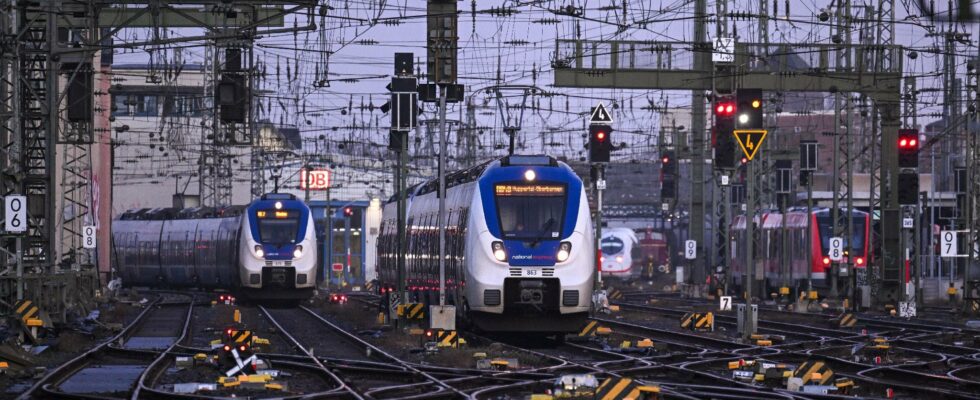Olaf Scholz is not the type to ignite crowds. Your monolithic, marmoreal face, it’s even rather… boring. This March 10, 2023, however, in front of an audience of journalists, the German Chancellor is cheerful. Soon, he announces, the country will experience a new “Wirtschaftswunder” (economic miracle). As during the golden decades (1950-1960). A year later, Germany was in recession and a hail of criticism fell on Scholz. No miracle, therefore, but the worst economic record since the Schröder years. Inflation, energy and housing crisis, demographics at half mast… The indicators are flashing red, even if Berlin, with little debt, maintains a financial margin of maneuver that many envy.
We still need to be able to act. “The three parties in power [NDLR : sociaux-démocrates, verts et libéraux] don’t agree on anything, criticizes a keen observer in Brussels. Everything is blocked and will remain so until the federal elections in 2025.” A boulevard for the far right (AfD), which could soon become the second party in the country. Is Germany sick? It is unfortunately our diagnosis and this is very bad news because faced with a bellicose Russia and at a time of a possible return of Trump, Europe, on the contrary, needs a strong Germany.
EPISODE 1 – In Germany, the AfD is ever more extreme and ever more… popular
EPISODE 2 – War in Ukraine: Olaf Scholz, a difficult diplomacy that annoys the Elysée
Angela Merkel had barely left the Chancellery at the end of 2021 when the Germans discovered the pot of roses: contrary to the messages they were being fed, the country’s infrastructure is in a deplorable state. The consequence of (too) rigid budgetary discipline, followed by all of Merkel’s finance ministers. In fact, the transport, electricity and, above all, digital networks are currently lagging behind in investments, which is detrimental to the economy.
To bring Germany back up to speed, the public authorities would need a financial effort comparable to that of reunification, i.e. more than 370 billion euros, according to a study by the German Institute of Urban Planning (Difu). The railway company Deutsche Bahn (DB) has suffered so much from underinvestment since its reform in 1994 – which was to lead it to the stock market! – that it is unable to cope with the increase in traffic. The setbacks of the Paris-Berlin night train, whose return in December 2023 was celebrated with fanfare by the two capitals, highlighted its cruel lack of capacity. DB is unable to make enough tracks available.
28,000 bridges to rebuild
Worse, the punctuality of main lines has never been so bad, with more than a third of ICE, the German TGVs, not arriving on time. Germans have gotten into the habit of taking trains earlier to be sure of being on time for their appointments or not missing their connection. Traveler mishaps have become a big topic of discussion at business dinners.
More than 28,000 bridges, half of which were inaugurated in the 1970s and 1980s, need to be rebuilt. It is the very substance of the country that is affected. On the A1, one of the most important traffic axes in Europe, the Pont de Leverkusen, on the Rhine, was closed to heavy goods vehicle traffic in 2016 due to safety concerns. It just reopened on February 4.
